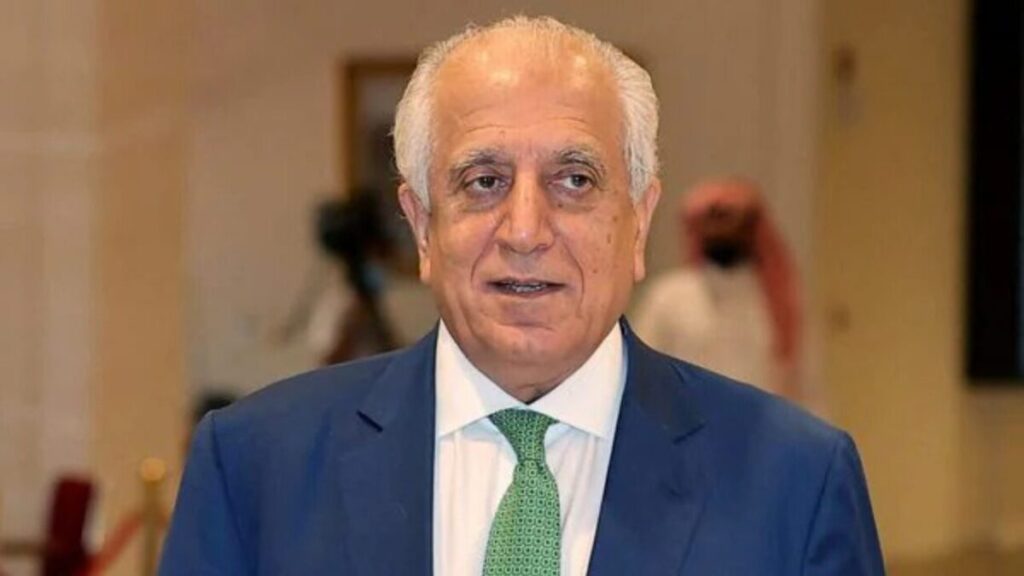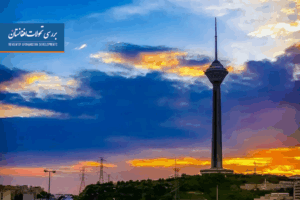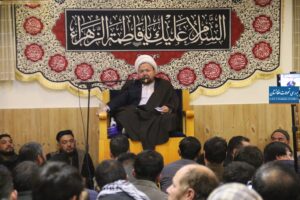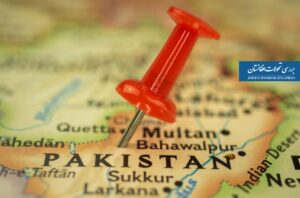Review of Afghanistan developments
Khalilzad’s trip to Kabul has once again highlighted the unclear trajectory of the relationship between Washington and the Taliban administration. While the Foreign Ministry of the Taliban government stressed on Wednesday that Zalmay Khalilzad’s arrival in Kabul was unofficial, the significance of Khalilzad’s visit is substantial enough to be regarded as more than merely a normal meeting.
Khalilzad is an American politician whose name is associated with the political destiny of Afghanistan. His involvement in Afghan affairs has been significant over the past decades, particularly during the administrations of Bush and Trump (first term). During the Doha negotiations between the United States and the Taliban, this American of Afghan descent played a crucial role.
Due to his involvement in the events occurring in Afghanistan, each time the media reports on Khalilzad visit to Kabul, it triggers a surge of speculation and analysis.
The meeting report and formal accounts concerning Khalilzad’s visit to Kabul
As per the official announcement from the Ministry of Foreign Affairs of the Taliban government, Khalilzad’s visit to Kabul was characterized as informal and took place within the context of personal discussions. Nevertheless, it appears that Khalilzad’s encounter with Amir Khan Muttaqi, the Foreign Minister of the Taliban government, transcended mere formalities, suggesting that significant topics, including the Taliban’s relationship with Washington, were likely addressed during their meeting.
This marks Khalilzad’s second visit to Kabul following the Taliban’s takeover of Afghanistan. Previously, he journeyed to Kabul alongside Adam Buehler, the special representative for hostage affairs during the Trump administration, to facilitate the release of an American citizen, which successfully resulted in that release. Therefore, Khalilzad’s visit to Kabul could potentially lead to further actions this time.
Presenting three scenarios about Khalilzad travel goals
In light of the recent developments in Afghanistan and the US foreign policy under the Trump administration, three potential scenarios can be suggested concerning the objectives of Khalilzad’s visit to Kabul.
Scenario 1: Individual guidance to re-engage in the discussion
In the initial scenario, Khalilzad is present on this trip in an unofficial capacity, aiming to counsel the Taliban government to encourage Kabul’s engagement with the United States. Concerned about the existing state of relations between the Taliban government and Washington, Khalilzad fears that the current circumstances could steer Kabul-Washington relations towards an unfavorable outcome. Thus, by offering guidance to the Taliban leaders, he seeks to facilitate dialogue and, ultimately, foster engagement between Kabul and Washington.
This situation is presently very probable as Khalilzad, motivated by his empathy for the Taliban administration, is attempting to communicate his perspectives to Kabul without exerting political pressure, thereby facilitating the restoration of relations.
Second scenario: Warning about Kabul-Islamabad tension
The second scenario pertains to the recent increase in tensions between Kabul and Islamabad. In recent months, the relationship between the two nations has experienced heightened tensions that have resulted in military conflict. Khalilzad’s visit to Kabul might have been aimed at cautioning the Taliban regarding the repercussions of further escalating these tensions.
Khalilzad is a fervent critic of the involvement of the Pakistani military in Afghan politics. In recent years, particularly following the arrest of former Pakistani Prime Minister Imran Khan, he has consistently expressed concerns in his interviews and messages on the X Network regarding the detrimental influence of the Pakistani military on both Pakistan’s domestic and foreign policies, particularly concerning Afghanistan. On the other hand, he recognizes that the Pakistani military might undertake actions that could have serious consequences for the Taliban government. As a result, it is plausible that he sought to persuade the Taliban to implement a more cautious approach towards Pakistan during this visit.
Given Khalilzad’s affinity for the Taliban administration and the adverse effects stemming from the political strife and military confrontations with Pakistan, he expresses concern that the ongoing nature of this process may threaten the Taliban government’s standing both regionally and on the global stage. For this reason, this situation also holds significant implications.
Scenario Three: Communicating Washington’s Message to the Taliban Government
One of the most significant scenarios concerning Khalilzad’s visit to Kabul is his function in delivering a message from Washington to the Taliban administration. In line with this scenario, Khalilzad’s visit to Kabul could be perceived as a covert operation aimed at communicating the Trump administration’s updated stance on the Taliban government.
Following Trump’s request for the transfer of Bagram airbase and his public threat, which elicited a reaction from the Taliban government, the US government may be considering more stringent measures against the Taliban administration. These measures could include the implementation of new sanctions or providing support to the opposition against the Taliban.
In this context, Khalilzad, who maintains a degree of credibility with the Taliban administration, is viewed as an appropriate choice to deliver the message. He is capable of communicating Washington’s conditions and expectations to the Taliban leadership in a gentle and indirect manner. Therefore, Khalilzad’s visit to Kabul ought to be interpreted as a warning: the Taliban must either facilitate engagement or they will encounter increased pressures.
Scenario analysis
While the initial scenario appears to be the most probable, it is also feasible to contemplate a blend of all three scenarios. Consequently, Khalilzad’s visit to Kabul may have served multiple purposes: offering counsel to the Taliban administration, delivering a message from Washington, and addressing the Taliban leaders about the strained relations between Kabul and Islamabad. Thus, this trip can be viewed as a multifaceted effort that encompasses a message, a caution, and an invitation for dialogue.
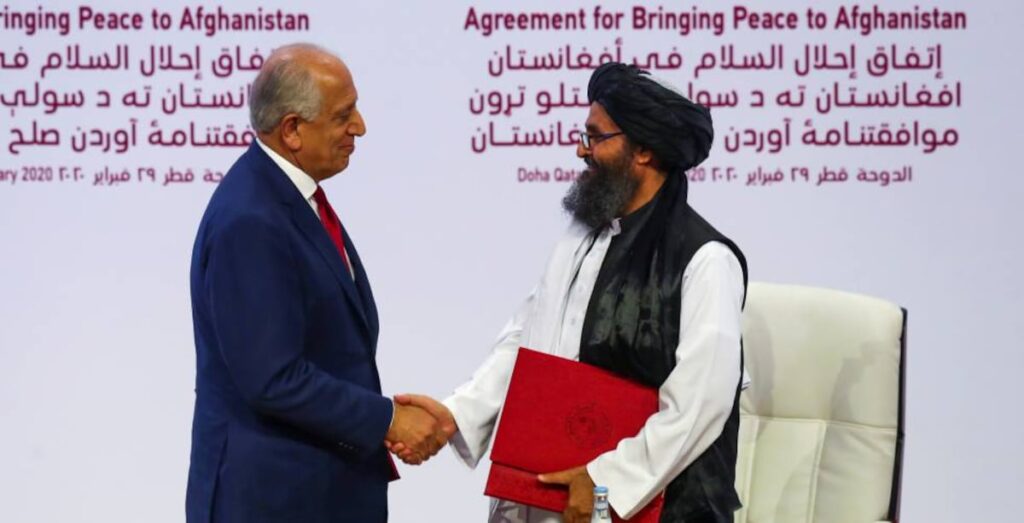
The regional and international aspects of Khalilzad’s visit to Kabul
At the regional level, the journey has elicited various reactions and sensitivities. Certain Pakistani media outlets, such as Dawn and the Express Tribune, have indicated that Islamabad is monitoring Khalilzad’s recent activities “closely.” Pakistani analysts have viewed this action as a strategy to diminish Islamabad’s influence in the Afghan situation.
Conversely, observers from Iran, China, and Russia are viewing the trip with skepticism. From the viewpoints of Tehran, Beijing, and Moscow, Khalilzad’s visit to Kabul might indicate a revival of American diplomatic efforts in Afghanistan, potentially impacting the region. These nations remember that Khalilzad’s involvement in the Doha negotiations resulted in the collapse of a regime, which had significant repercussions for the whole region.
Nevertheless, the Taliban government’s unwavering position regarding the US re-engagement in Afghanistan (which includes opposition to military involvement and a desire to refrain from meddling in domestic matters) alongside the unfavorable perception of Khalilzad, both within certain political factions in Washington and among the adversaries of the Taliban regime, suggests that this American diplomat will face significant challenges.
Related Articles
Khalilzad’s roadmap for changing Pakistan’s power structure
Analysis of the American Delegation’s Visit to Afghanistan
Conclusion
Khalilzad’s visit to Kabul evokes memories of his role as a mediator during the Doha negotiations, which significantly influenced Afghanistan’s future. Four years following the US withdrawal from Afghanistan, Khalilzad has reappeared in the Afghan landscape, this time not in an official capacity, but rather as a mediator.
While Khalilzad’s visit to Kabul has been characterized as unofficial, this does not lessen its significance, given his longstanding involvement in Afghanistan throughout the Republican administration in the United States. His strong connections with Trump’s inner circle might lead Khalilzad to function as a shadow diplomat on this occasion. The established protocol in the United States is to employ its own seasoned and unofficial representatives.


